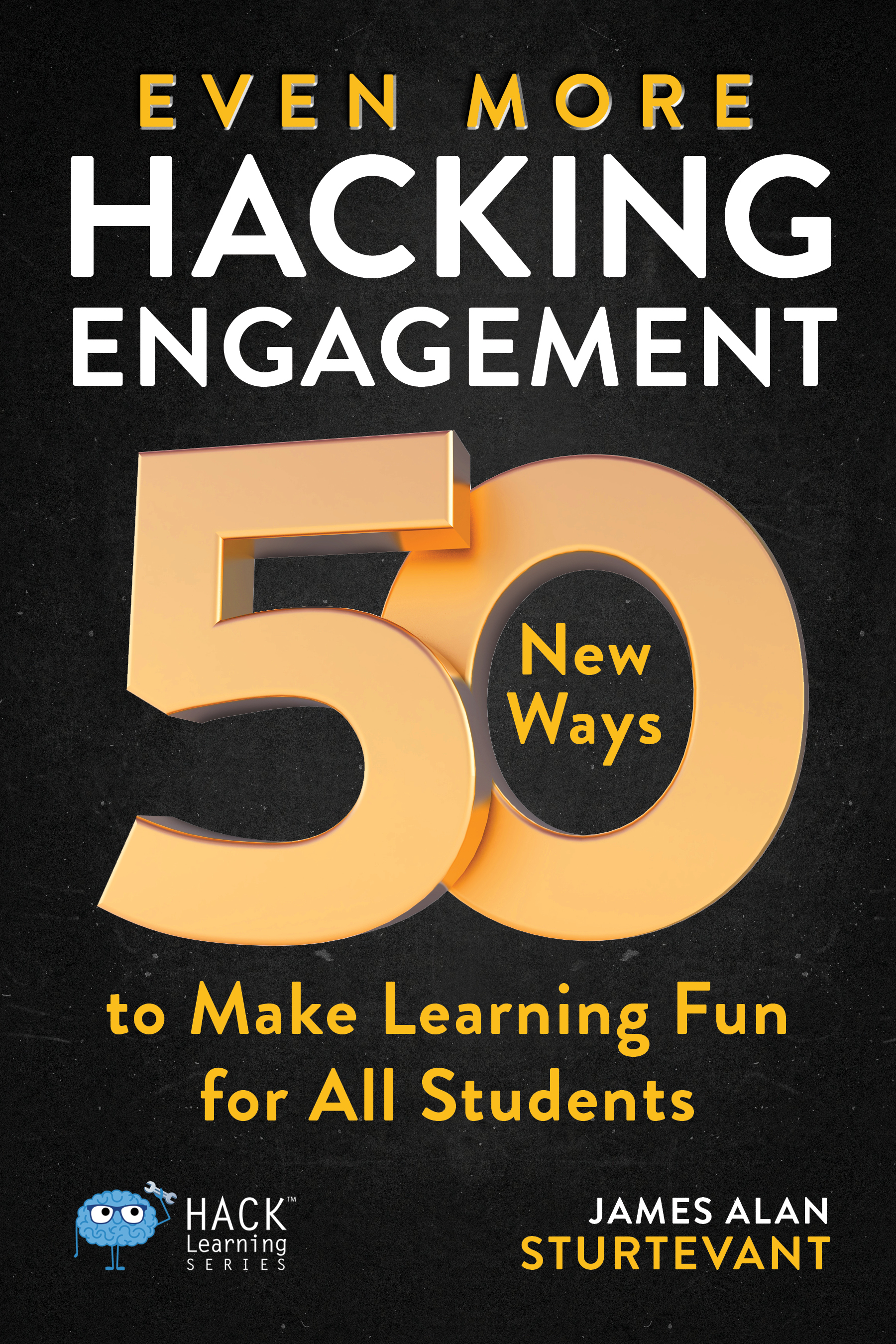Are you Engaged?
Jan 19, 2023
By James Alan Sturtevant
I’m passionate about student engagement. I’ve written books about it. I host a podcast about it. I’m all about student engagement, and I’m not alone. Engagement is a primary objective of most contemporary educators. Engaging lessons foster learning, cause class periods to fly by, compete with student phone addictions, impress evaluators, and encourage kids to grow to love your class.
So we can all agree that student engagement is important, but the title of this blog does not address students. The question remains:
Are YOU engaged?
This is an essential question because educators are under siege. Aggressive politicians and school boards are micromanaging everything we do and even questioning our motives. Students are experiencing a profound and prolonged hangover from COVID’s forced exile. It’s a tough time to be a teacher. Unfortunately, many educators are heading for professional exits.
I retired from K–12 teaching in 2019. Since then, I have taught future educators at the college level. The scary part (and please pardon the sports analogy) is the bench is depleted. My students are great. They're going to be marvelous teachers, but there just aren’t enough of them. Perhaps if more educators enjoyed their lives and promoted them to others, this deficit could be erased.
So that brings us back to the question. Are you engaged? And I need to do some qualifying.
You can certainly be engaged in things that make you anxious. I have a number of contemporaries who watch the local news and get freaked out by crime. They become paranoid. When I point out that the crime rates fluctuate but haven’t changed much in my lifetime, it’s not a welcome contribution. Nor do they express appreciation when I mention that local news stations love scaring older people.
These folks are engaged but not in a good way.
Unfortunately, many teachers are stuck in a similar vortex. They consume story after story promoting school violence, culture war curriculum debates, and teacher attrition rates. We need to break out of this feedback loop.
I’m certainly not promoting blissful ignorance. It’s important to understand what’s happening to education at the macro level, but don’t let these variables be too influential on your micro decision-making. Also, please remember that most kids like their teachers, and their parents like you too.
The best remedy for feelings of anxiety prompted by outside forces is to leverage what’s in your control.
Again, I come back to this question, are you engaged?
I taught high school social studies for 34 years. That’s a long time to do anything. It was a wonderful run, but there were some dark periods. I sometimes reflect on those challenges:
- At times, I felt under-compensated.
- At times, I had certain administrators I didn’t like.
- Some years, I had challenging classes and students.
- I had a few meetings with irrational parents.
- At times, my students seemed standoffish.
These challenges were significant when they occurred, but fortunately, I learned a treatment much like one would treat a physical injury. When I hit the doldrums, I allowed myself a period of melancholy, and then I explored ways to become engaged again.
Teachers, by our nature, are problem solvers. Solving problems is ultra-engaging and can lead to a vastly more enjoyable existence. Not to mention, it also gives you a profound sense of accomplishment.
You could probably compose an inventory of anxiety-producing factors in regard to your current teaching gig. Why not throw yourself into creating solutions to these obstacles?
Here were some of my victories:
- Instead of complaining about administrators I didn’t like, I learned to objectively evaluate some of their staff learning goals. Once I removed them from the equation, I was forced to acknowledge that some of their ideas could potentially improve my teaching.
- After a semester with a challenging class, I experimented with getting students involved in classroom management organization. It worked!
- With difficult parents, I practiced focused listening techniques. That was a great bluster reducer.
I wasn’t always successful with my attempts, but my victories were significant.
One of the greatest ways that you can reengage in teaching is to find solutions to your obstacles. Limit your exposure to external toxicity, and control what you can. Become an ambassador to this wonderful calling. Future generations are at stake. And finally, it would be wonderful to see you smiling again!






